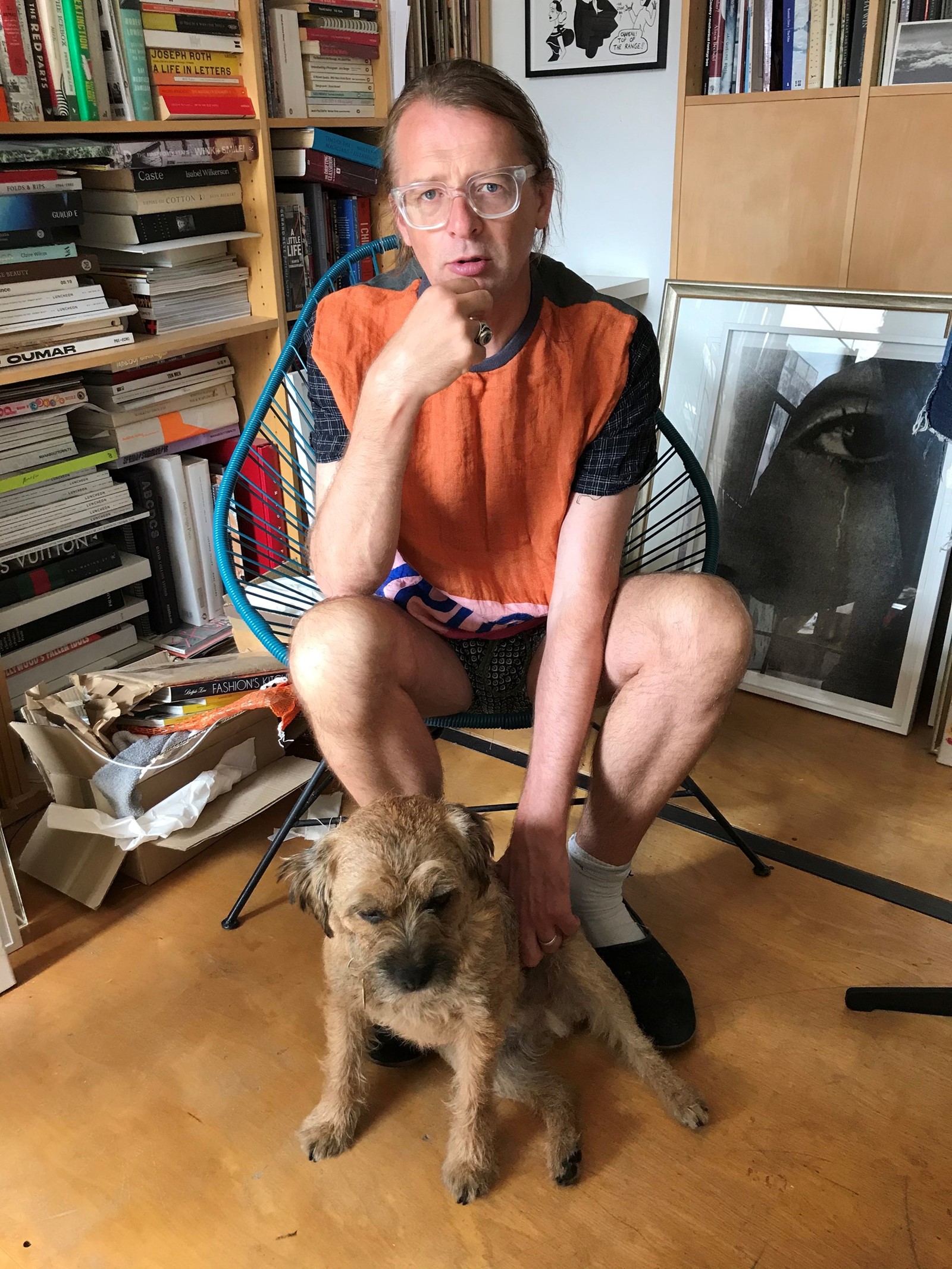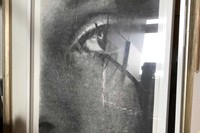How have people’s lives been shaped by the print matter they collect? In a new column for AnOthermag.com titled Paper View, Norwegian publisher, curator and critic Elise By Olsen sifts through the libraries of various cultural figures, learning more about their lives and careers in the process.
It’s August on a Zoom call. Charlie Porter – the British fashion journalist and author – is at home in an unspecified location 27 minutes walking distance from Donlon Books in London. His computer camera is positioned on a working station in his office-cum-library, with 90s Ikea bookshelves in the back. In fact, Porter looks slightly like a weather forecaster standing full body in front of a green screen, gesticulating – the green screen being floor-to-ceiling racks. I’m in my office hidden behind a library on the Oslo harbour, where Porter also came to visit me a few weeks prior, to talk about Louise Bourgeois and style.
Porter was born near Daventry, Northamptonshire in 1973. This means he was ten in 1983, and according to Porter, all people would ever talk about in 1983 was Nineteen Eighty-Four, the novel by George Orwell. As he hovers around trying to find a copy to show me, he explains that this was the book that prompted his adult practice of collecting books – his gateway book, if you will. His copy is peach in colour, slightly sun-bleached, with his schoolboy signature imprinted on the inner cover. In his youth, he also bought lots of books at the local bookstore that he didn’t really read but just simply liked having around. “What actually really mattered was the act of buying. It’s similar to what I still do when I go to a shop and buy a pile of books, thinking that I will read them one day. I never end up actually reading them.” He keeps his unread books together with his read books, there’s no separate pile. To qualify for his shelf, it must simply be a book he wants to keep.
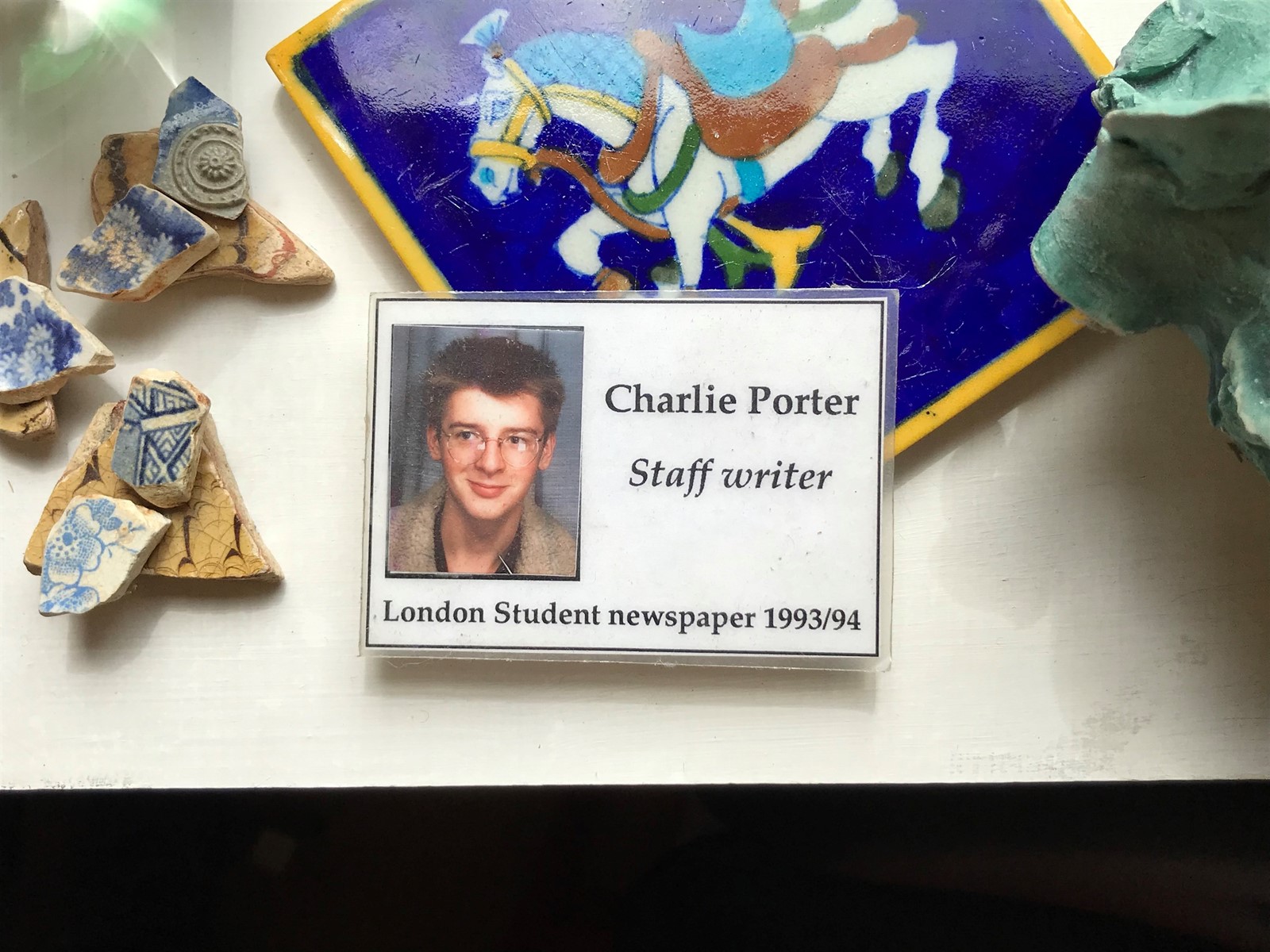
Porter is self-educated through his books and formally untrained as a writer, since he couldn’t afford to study fashion journalism at university. Porter uses his books actively, and now also his husband’s books, for his own writing. His ‘working library’ has been hugely influential to both his first book What Artists Wear, his fashion journalism at magazines such as The Guardian, Fantastic Man, i-D and GQ, as well as his upcoming book, Bring No Clothes. “There’s lots of research in my new book, and particularly lots of reading on [Virginia] Woolf. A lot of the Woolf that I read was my husband’s old copies; again, this blended library is super useful. If I found something interesting in Rich’s books I would take a photo of that part, and store it in an album on my phone. I left them with no corners folded down, no creases or anything, like I did with the other books I used, they’re practically torn to pieces at this point.” Bibliophilism means precisely that you need to take care of the books, but also use the books, and use is not innocent.
“Book bindings are so important to me, just to see their names on the spine affirms the books and reminds me of them” – Charlie Porter
If Porter doesn’t mark the inner covers of his books with a signature, he loves putting stickers on them. He shows me the drawer with his sticker collection, from stickers with rabbit noses to Mexican stickers with all kinds of eyes, to obscure medical stickers. “I have stickers for a lifetime,” he explains. On camera, he shows me a stickered copy of Moby-Dick that he started reading on a flight from London to New York in 2013. Apropos, Porter once confessed that his favourite place to write is on long-haul flights going in the direction of the sun. “The journeys with the sun are special to me, perhaps also because it’s usually the journey going to America, which has its own kind of idealism. I write to a certain point on the flight, and then I read if the films aren’t very good. Coming back the other way I just sleep straight away.”
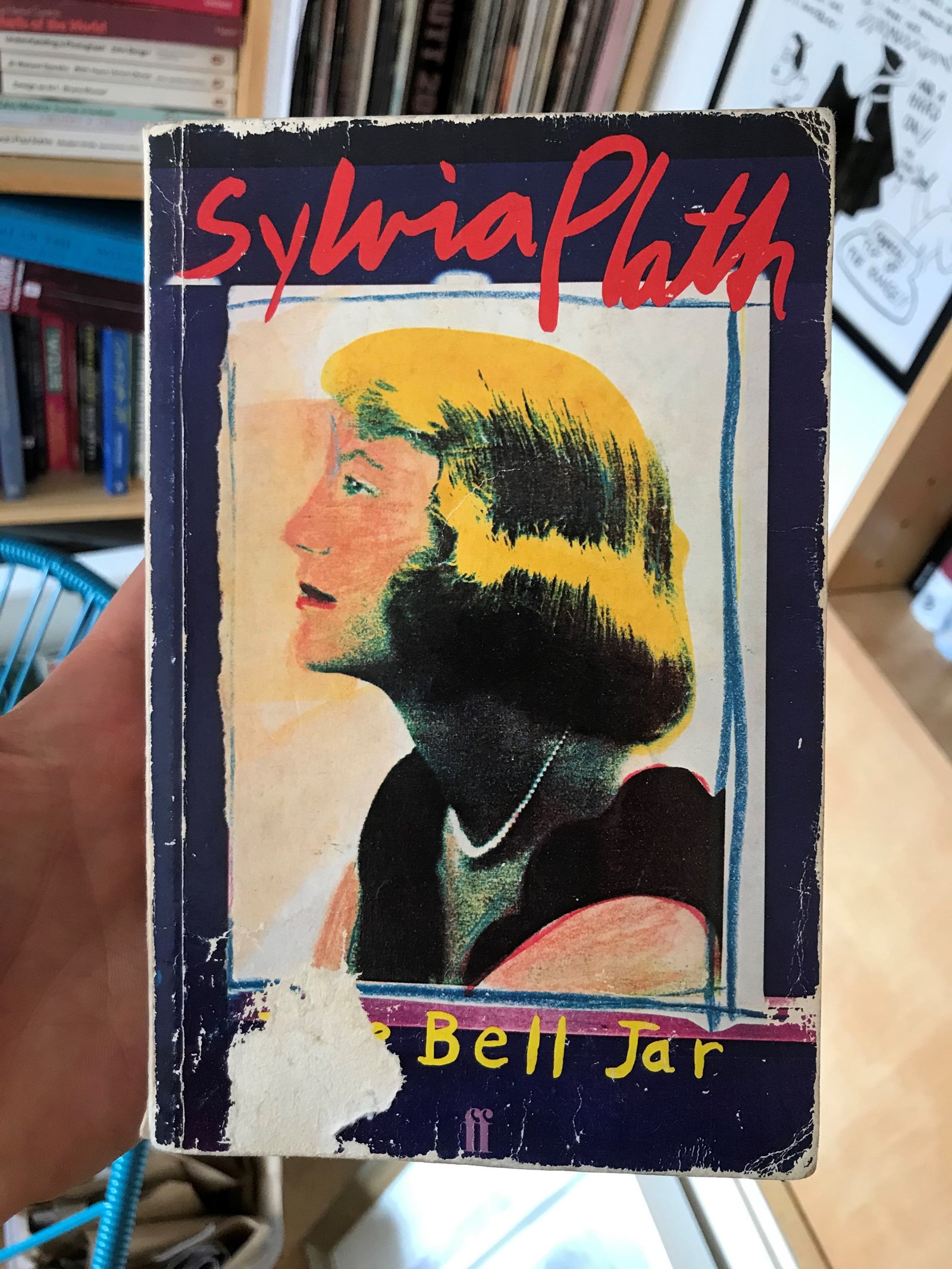
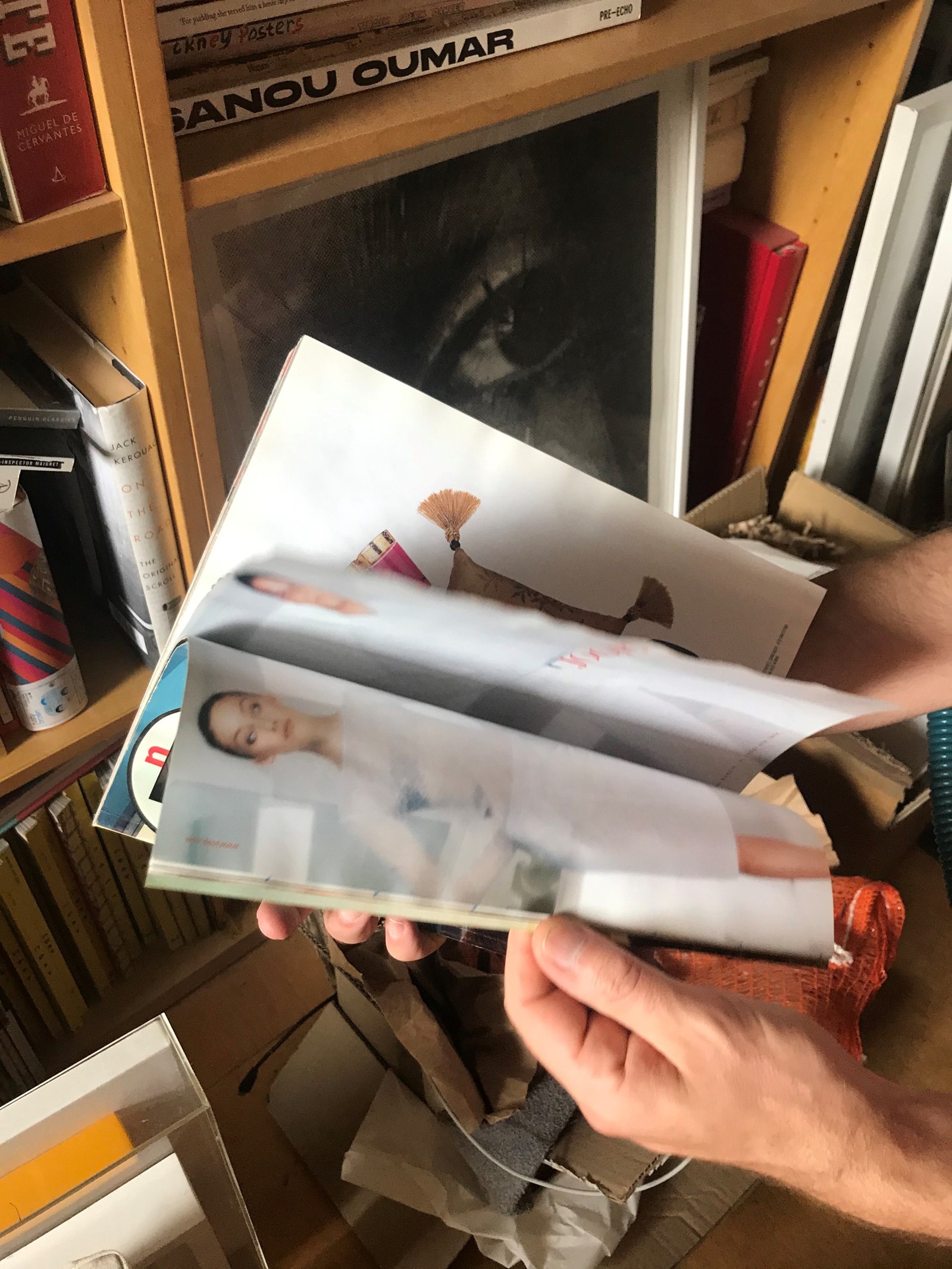
In addition to collecting books (and stickers), Porter collects a few magazine titles. “I collected The Face from 1986, and also Smash Hits, but I didn’t keep those because they were staple-bound. I’d rather cut them up and put them on my wall or make collages. i-D, before it was perfect-bound, didn’t survive either.” Porter pulls up an issue of The Face that he notes as “foundational” to his understanding of culture, solely because of a story about Trojan – the London club personality – and his life, right before they passed away a few months after. “This issue was my window into counterculture, and into sadness, grief, friendship and losing people, community, nightlife and the danger of nightlife. Trojan’s East London flat, which he shared with Leigh Bowery, is pictured on the pages with walls decorated with cut-out collages from various magazines, similar to Porter’s childhood bedroom.
When his husband Rich moved in six years ago, he admits to being a bit reluctant with shelf space, and opting to have separate book collections. Now, they’re a bit more blended. “The thing about Rich and I is that we have very different books, but I think they work well together. We’re currently planning a clean-out where we take everything out and put it back in. Book bindings are so important to me, just to see their names on the spine affirms the books and reminds me of them. I’m looking forward to re-activating these books.”
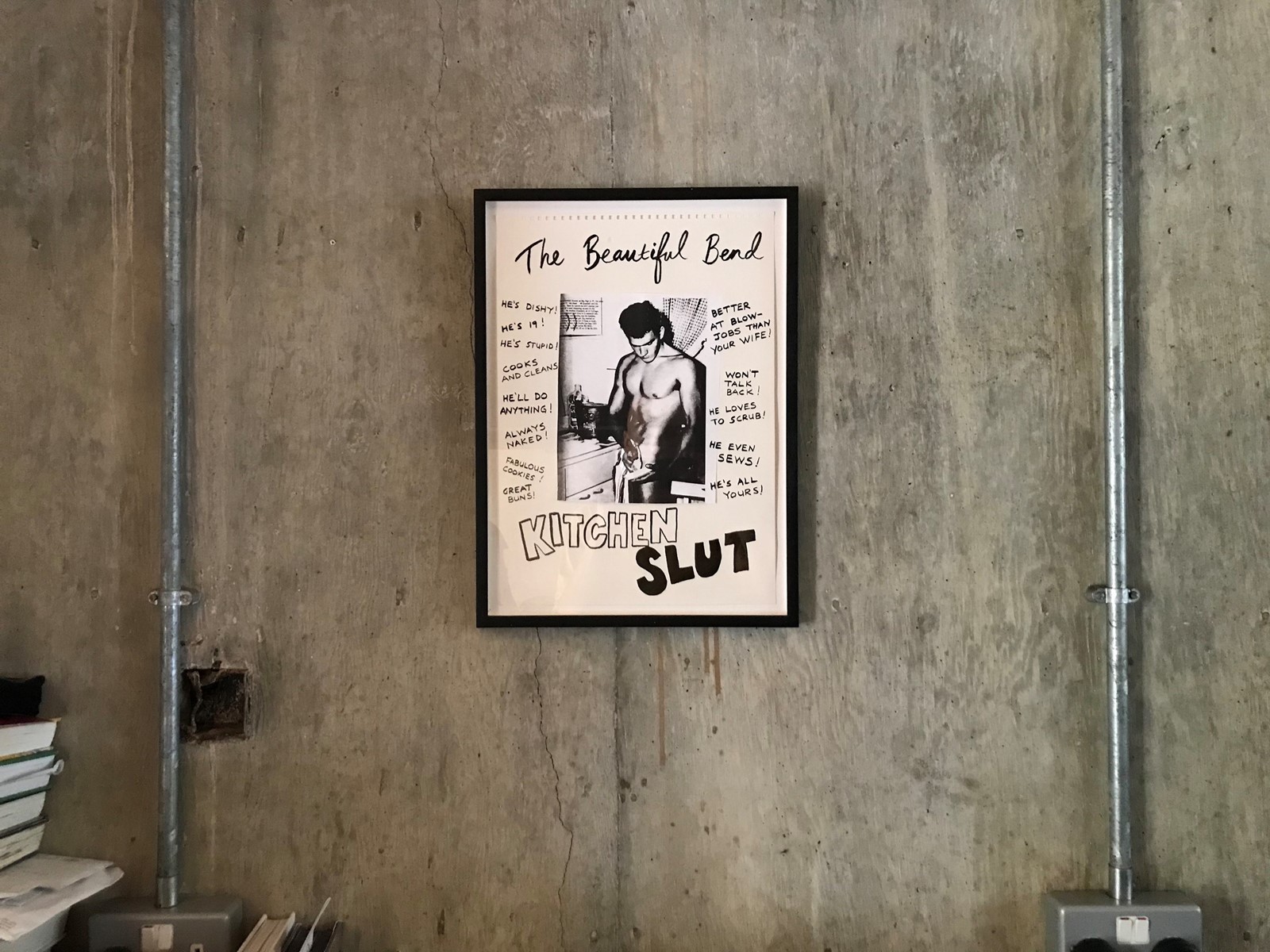
With any kind of library or assembly of printed matter, there’s the inevitable worry about space. Collecting is a lifelong responsibility; to bring them with you, to make space for them, to care for them, and to make sure you see them. Porter has moved with his library twice. “This is the second space that I own, yet the first time I’ve had a proper library room of my own. It’s important for me not to worry about space for the collection or the possibility of moving”. Nodding on Zoom, I tell Porter that I just bought my first house, basically so that mine and my boyfriend’s separated bookshelves can have a home and be kept safe and stable in union.
So what justifies hoarding? While finishing Bring No Clothes, Porter found an old copy of EM Forster’s Collected Short Stories that he had from when he was in school that became important for the book. “I bought it back in the day, thinking I would love it and never read it. Suddenly this book was super useful. It’s almost like me, 35 years ago, bought this for myself for it to be super useful today.” If anything, the amassed unread piles come in handy when a book – once and every now and then – returns and reminds you of its presence.
Bring No Clothes: Bloomsbury and the Philosophy of Fashion will be available from Dover Street Market and all good bookstores on 7 September 2023. Bring No Clothes: Bloomsbury and Fashion runs at Charleston in Lewes from 13 September 2023 – 7 January 2024.
